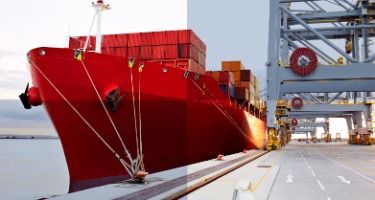On September 30, 2021, the United States Fifth Circuit Court of Appeals issued its consequential, if not controversial, opinion in Adams v. All Coast, LLC, 2021 U.S. App. LEXIS 29559 (5th Cir. Sep. 30, 2021). The opinion, which was substituted in place of a prior February 11, 2021 panel opinion, was released along with a per curiam denial of a request for en bancrehearing, and included a forceful dissent from Judge Edith Jones. The question is, was the opinion a “fair reading” of the applicable regulations or the upending of legitimate and longstanding expectations?
ADAMS V. ALL COAST, LLC – BACKGROUND
The issue before the Court in Adams was the Fair Labor Standards Act (“FLSA”) classification of All Coast employees who served aboard the company’s liftboats. The employees served as members of the crew of the liftboats and would also operate cranes aboard the liftboats. Adams filed a lawsuit on behalf of himself and other similarly situated employees, arguing that they were entitled to payment of overtime wages and were improperly classified as “seaman” exempt from the FLSA’s overtime requirements.
Adams alleged that, although he was hired to perform various maritime tasks, he spent most of his time doing something “completely terrestrial”—operating cranes attached to the liftboats to move customers’ equipment on and off the boats, docks, and offshore oil rigs. In the district court, All Coast sought dismissal of plaintiffs’ claims, arguing that under the FLSA, Adams was an exempt employee. The district court entered summary judgment for All Coast after concluding that the employees’ work served the liftboats’ operation as a means of transportation. The plaintiffs appealed that decision to the Fifth Circuit.
Adams argued that despite his job title, his main duty had nothing to do with maritime work; rather, he spent most of his time operating a hydraulic crane on the deck of the liftboat. He argued that, because he was really a crane operator and not a seaman, he was owed unpaid overtime wages under the FLSA. Adams argued that he and the other plaintiffs spent no less than 80% of their time on the vessel in a jacked up, stationary position, and that during some hitches they were jacked up 100% of the time.
The FLSA has a baseline requirement that any employee who works longer than 40 hours in a workweek must be compensated at time-and-a-half. However, not all employees are protected by this broad requirement, and some employees, depending on their classification, are exempt from that overtime provision. One such exemption to the FLSA overtime requirement is any employee who is employed as a seaman, a term of art defined in FLSA regulations as an employee who is (1) subject to the authority, direction, and control of the master, and (2) whose service is primarily offered to aid the vessel as a means of transportation, provided the employee does not perform a substantial amount of different work.
THE FIFTH CIRCUIT’S CONCLUSION
According to the panel opinion, the district court’s conclusion that crane operation is seaman’s work that aids the vessel as a means of transportation runs contrary to the regulatory language and Fifth Circuit decisions interpreting it. The court pointed to one regulation stating that assisting in the loading or unloading of freight at the beginning or end of a voyage is not connected with operation of the vessel as a means of transportation. It also pointed to other regulations stating that employees engaged in construction, dredging operations, or other digging or processing of sand, gravel, or other materials are not employed as seaman, but are engaged in industrial or excavation work. The court noted deposition testimony indicating that the plaintiffs spent between 25% and 90% of their day operating the crane and that the plaintiffs only used the cranes when the liftboats were stationary. The Fifth Circuit equated this with loading or unloading freight at the beginning or end of a voyage.
The court concluded that, when read in concert, a natural reading of the FLSA regulations indicates that these plaintiffs were engaged in seaman’s work when they performed their nautical duties, but not when operating cranes. When the liftboats were jacked up, the crews spent more time operating the cranes than performing their nautical tasks; thus, the FLSA regulations suggested the plaintiffs were not engaged in seamen’s work when operating cranes.
In response to the disputed question—whether operating the cranes aided the vessel as a means of transportation—the Fifth Circuit answered in the negative. The court stated that once the plaintiffs finished their duties as the boat’s crew, they turned their attention exclusively to operating the cranes. The court segregated these into two discrete jobs: upkeep of the boat and operation of the crane. The court held that the plaintiffs’ crane operation was not seamen’s work for purposes of the FLSA exemption. Because of the substantial amount of time the plaintiffs spent operating cranes, they did not qualify as seamen under the FLSA, at least when they were operating the cranes. The Fifth Circuit remanded the case on this issue for further proceedings consistent with this holding.
On the related issue of the status of cooks aboard the liftboats, the Fifth Circuit found that All Coast was not entitled to summary judgment. The court stated that a cook is usually a seaman because he usually cooks for seamen. However, the court distinguished this case on two grounds.
First, the court stated that the district court must consider the status of the cooks again in light of the holding that the crew members are not engaged in seamen’s work when operating the hydraulic cranes. If that crew is not serving the vessel as a means of transportation, then neither are the cooks.
Second, the opinion directed the district court to consider how much time the cooks spent preparing food for All Coast’s chartered passengers. The court determined that there was still a question as to whether the cooks rendered a service that was primarily in aid and operation of the vessel as a means of transportation and whether they performed a substantial amount of work of a different character. In this case, a cook who spends more than roughly 20% of his time cooking for non-crew members, or crewmembers who are non-exempt seamen, has spent a substantial amount of time on differing work. The Fifth Circuit found that these fact questions precluded summary judgment for All Coast with respect to the cooks.
A FORCEFUL DISSENT FROM JUDGE EDITH JONES
The September 30, 2021 opinion also included a forceful dissent by Judge Edith H. Jones, joined by Judge Elrod, in which she stated that, for the second time in two months, the Fifth Circuit flouted Supreme Court precedent, calling for a fair, not narrow, reading of FLSA exemptions. She noted that the plaintiffs here were Coast Guard-licensed mariners who served as mates, deckhands, ordinary seamen, and able-bodied seaman aboard the liftboats. She noted that the crew navigates these vessels in the Gulf to deliver or retrieve supplies, workers, and machinery as would any other commercial vessel. The liftboat voyages typically lasted 14 days, during which the plaintiffs lived, slept, and worked aboard the vessel under the direction of the captain.
Even when the liftboat was jacked up, the crew members retained responsibility for standing lookout, checking the engine room, splicing rope, cleaning, and performing other quintessential seamen’s work. The crew members moved back and forth between working the cranes and serving other vessel functions.
Judge Jones agreed with All Coast’s argument, adopted by the district court, that the plaintiffs were, as a matter of law, exempt seamen in the ordinary meaning of that phrase because crane operation was integral to the mission, transportation function, and seaworthiness of the liftboats. She believed the regulations supported All Coast’s characterization of the plaintiffs as exempt seamen, and that the panel erred in (1) “artificially compartmentalizing” their tasks into those connected with sailing the vessels and operating the cranes, and (2) analogizing crane operations to industrial.
In Judge Jones’ opinion, a fair reading of the regulations dictated that these plaintiffs are employed as seamen for purposes of the FLSA.
THE IMPACT OF THIS DECISION ON THE MARITIME INDUSTRY
The impact of this decision on the maritime industry remains to be seen. After the original panel opinion came down, the Offshore Marine Services Association (“OMSA”) and the National Ocean Industries Association (“NOIA”) submitted a “friend of the court” brief to apprise the Fifth Circuit of the potential difficulties that would arise if it maintained its opinion that the plaintiffs were not exempt seamen under the FLSA.
The brief argued that the opinion created “an unworkable construct in which members of the crew walk in and out of exempt seaman status minute by minute, depending on the specific tasks they are performing.” It also argued that the opinion would create a burdensome record-keeping nightmare for industry operators that would need to document every task and every moment of an employee’s work in order to determine whether the exemption applies. As suggested in the brief, these difficulties could further burden an already burdened offshore exploration industry.





























